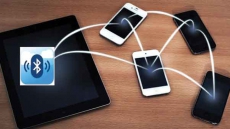Is Smart Technology Making Us Any Smarter?
The 21st century is often coined with the phrase, ‘the digital age’. Undoubtedly, technology is an overarching theme in terms of the advances and developments made in the past couple of decades. When looking at the underlying reason behind why we invest so heavily in the technological progress, a simple answer can be that of making life easier. Automating processes and creating tools that help with a more efficient achievement of goals, is an opportunity to direct the saved time and energy into other areas. However, a pressing concern has been surging with the increasing onset of digital developments: is technology making us smarter, or is it doing quite the opposite?
Before diving into how technology influences intelligence, it is important to define the scope of what intelligence is. Psychologist, Dr. Tomas Chamorro-Premuzic, puts the concept of intelligence into two buckets. One way of looking at intelligence is in its fluid form, which encompasses the ability to acquire and process information. An example would be the ability of computers to multiple layers of data, adding to the ability of a person to multitask and handle complex information. Dr. Chamarro-Premuzic adds, “The second aspect of intellect — crystallized IQ — refers not to our ability to gather information but what we actually know. In simple terms, crystallized intelligence means knowledge.”
When it comes to assessing the impact of technology, it falls into both realms of intelligence. Technologies allow us to perform multiple calculation at the same time. Assume the use of calculators and computers, using which students can perform various calculations. Figuring out the square root of a specific number is not necessarily manually figured, and it’s possible that the operator of the calculator would not be able to arrive at the answer without the calculator. Regardless, there is an enhanced ability to gather and process information. In fact, it is agreed that students in the 20th century would find it difficult to solve problems that students today can solve.
When looking at knowledge, it is hard to reach a definitive conclusion, as there is no limit to how much knowledge we can possess. Technology has made it easier for us to understand how the brain functions and therefore tap into its potential more than we could have before. There has been a gradual increase in brain volume and average IQs have increased over the years. Moreover, our brains are not that good at certain things, such as remembering details. Here, computerized technologies can step in to retain information, avoiding the inevitable presence of human error.
That said, there are some concerning issues. Technology Times has explored the possibility that technology may be making us intellectually lazy. Right when digital platforms became the main method of working through and submitting school assignments, we became highly dependent on integrated spell check and grammar check mediums to validify our writing. Soon, this transitioned to texting on smartphones, where the phone can learn our texting behaviors, correcting and suggesting words as we type. The reality is that, in such instances, we no longer want to exert our brain power, despite maybe possessing the foundational knowledge of grammar and spelling. Overtime, however, our skillsets in this area may deplete, as we become more reliant on technology.
According to Psychology Today’s John Elder Robison, this turns into a problem eventually:
“But people who rely on machines have given up something vital yet intangible. They've lost the ability to think it through a navigation problem themselves. They have become slaves to machines out of intellectual laziness, and the laziness makes them less smart. The brain wiring that solves navigation problems allows us to solve other problems too.”
Conclusively, it can be argued that whether technology makes us smarter or not, lies in the hands of the user. Having technology allows us to arrive at conclusions faster, embody agility in a world with everchanging information, and become better at making judgements and decisions. Intellectual prowess does not necessarily imply memorizing and regurgitating information. Rather, it is the application of that information and choosing what action steps come out after analyzing it. Instead of simply consuming content, technology allows increased efficiency and efficacy. At the end of the day, technology is just a tool. Its impact is not rooted in that we use it, but how we use it.







